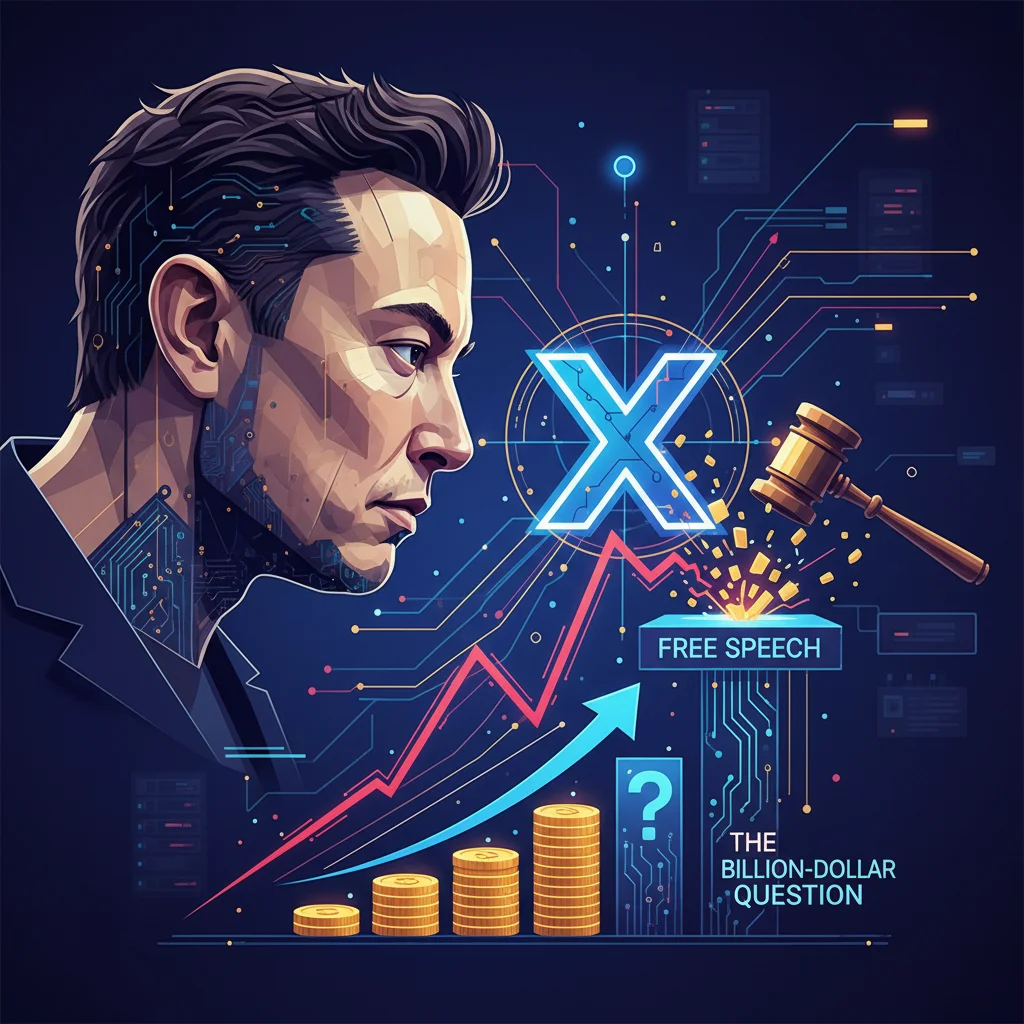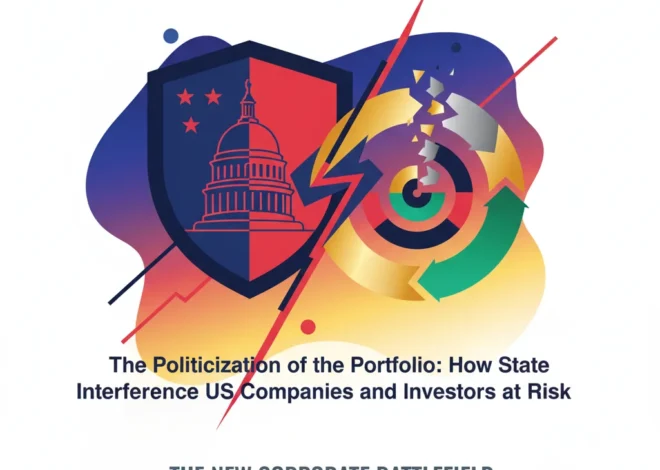
Musk’s Legal Gambit: A High-Stakes Bet on ‘Free Speech’ and the Future of X’s Financial Ecosystem
The Billion-Dollar Question Behind a Counterterrorism Trial
In a move that sent ripples across both technology and political spheres, Elon Musk’s X (formerly Twitter) has confirmed it is covering the legal costs for Tommy Robinson, a prominent far-right activist in the UK. Robinson is facing trial for allegedly refusing to provide his mobile phone pin to police upon his return from a trip to Canada, an act authorities are treating as a potential offense under counterterrorism laws. According to a report from the Financial Times, Robinson publicly stated that Musk is “helping me with my legal bills” and that X had “put me in touch with a legal team.”
On the surface, this appears to be another chapter in Musk’s well-documented “free speech absolutism.” However, for investors, finance professionals, and business leaders, this action is far more than a political statement. It represents a critical data point in a high-stakes experiment: Can a platform built on controversial, minimally moderated speech successfully pivot into a trusted global hub for finance, payments, and commerce? This decision forces a direct confrontation between Musk’s ideological vision and the foundational principles of the modern digital economy, raising profound questions about brand safety, investor risk, and the long-term financial viability of the “everything app” he envisions.
From Town Square to Battleground: The Economics of Absolutism
Since acquiring Twitter for $44 billion, Elon Musk has been unequivocal about his mission to transform it into the world’s preeminent “digital town square,” where all legal speech is permitted. This philosophy has led to the reinstatement of previously banned accounts and a significant reduction in content moderation teams. Funding the legal defense of a figure like Robinson is the most tangible, and perhaps most provocative, extension of this policy to date. It moves beyond platform policy and into direct financial intervention in legal matters that intersect with a user’s speech-related activities.
From a strategic standpoint, this can be viewed as a radical market differentiation tactic. In a social media landscape dominated by platforms like Meta’s Threads and Instagram, which are increasingly sanitizing their feeds for advertiser appeal, X is positioning itself as the unapologetic alternative. The bet is that a significant, highly engaged user base craves this unfiltered environment and will flock to the platform that guarantees it. This engagement is the lifeblood of any social network, driving the data and attention that are its core assets.
However, this strategy places the platform on a direct collision course with the economic realities of digital advertising. Major corporations, which have historically provided the bulk of social media revenue, operate under a strict doctrine of “brand safety.” They are profoundly averse to having their products appear alongside content perceived as hateful, extremist, or politically volatile. The consequences for X have been severe. In 2023, the company’s U.S. advertising revenue was projected to fall by nearly 60% since the takeover, plummeting to around $1 billion from over $2.5 billion in 2022, according to insider reports. Musk’s own candid remarks to advertisers—”Go f**k yourself”—at the DealBook Summit underscored his frustration, but also his commitment to his principles over immediate advertising income.
This financial pressure is a critical variable in the equation. The table below illustrates the stark contrast between the company’s pre-acquisition standing and its current valuation, highlighting the financial cost of this ideological pivot.
| Metric | Pre-Acquisition (2021) | Post-Acquisition (Estimate as of late 2023) |
|---|---|---|
| Acquisition Price / Valuation | $44 Billion | ~$19 Billion (based on internal equity grants) |
| Annual Revenue | $5.1 Billion | ~$3.4 Billion (projected for 2023) |
| Primary Revenue Source | Digital Advertising (~90%) | Advertising + Subscriptions (diversifying) |
| Content Moderation Stance | Aggressive, brand-safety focused | “Free Speech Absolutism,” significantly reduced |
This data illustrates a company purposefully trading massive, stable advertising revenue for a different, yet-to-be-proven business model. It’s a classic “disruption” play, but one where the disruption is ideological as much as it is technological.
The ‘Everything App’: A Fintech Dream on a Volatile Foundation
The strategic justification for absorbing such immense financial losses lies in Musk’s ambition to transform X into an “everything app.” This vision, modeled after China’s WeChat, is not just about social media; it’s about creating a single platform for communication, content creation, and, most importantly, financial services. The roadmap for X includes peer-to-peer payments, high-yield savings accounts, and potentially even stock and crypto trading. This is where the world of social media collides with the highly regulated and trust-dependent sectors of banking and fintech.
Building a successful financial technology platform requires one currency that is more valuable than any cryptocurrency: trust. Users must trust the platform with their financial data, their transaction history, and their money. Regulators must trust the platform to comply with stringent anti-money laundering (AML) and know-your-customer (KYC) laws. Financial partners, from banks to payment processors, must trust that the platform’s brand will not create reputational or legal risks for them.
Herein lies the fundamental contradiction. The very actions Musk is taking to cultivate an environment of absolute free speech—such as funding the legal defense of individuals involved in counterterrorism investigations—could be seen as profoundly toxic to the trust required for a global finance application. Regulators in the US, UK, and EU will undoubtedly scrutinize any application for money transmitter or banking licenses from a company that actively supports figures deemed extremist. The due diligence process for financial partnerships would become a minefield. Could a mainstream bank, concerned with its own public image and regulatory standing, afford to partner with a platform that is celebrated by the political fringe?
The potential integration of blockchain technology could offer a theoretical way out, envisioning a decentralized system less reliant on traditional banking partners. However, this introduces its own set of regulatory and adoption hurdles. For now, the path to becoming a mainstream fintech player runs directly through the established financial system, a system built on risk aversion and reputation.
The Ripple Effect: Broader Implications for the Musk Empire and the Economy
No Musk-led company operates in a vacuum. His actions at X have a tangible ripple effect on the perception of his entire portfolio, most notably the publicly traded Tesla (TSLA). For a significant portion of the investing community, Environmental, Social, and Governance (ESG) factors are no longer a niche consideration but a core component of risk analysis. The “Social” and “Governance” pillars of ESG are directly impacted by the CEO’s public conduct and the ethical stances of his companies.
Every controversial headline involving X adds to the narrative of unpredictability surrounding its leader. This can influence institutional investment decisions, impact consumer sentiment towards Tesla vehicles, and create distractions for a management team that needs to be focused on intense competition in the EV market. While the direct financial link between X’s legal funding decisions and Tesla’s stock market performance is difficult to quantify on a daily basis, it contributes to the overall risk profile assigned to the stock by analysts and major funds.
This situation serves as a powerful lesson in modern economics, where a CEO’s personal brand is an intangible but powerful asset—or liability. The value of this brand can sway markets, attract talent, and define corporate culture. Musk’s actions force a re-evaluation of how the market should price this brand-related risk.
A Calculated Risk or a Ticking Bomb?
Elon Musk’s decision to fund Tommy Robinson’s legal defense is not a simple act of charity or a whimsical political statement. It is a calculated, strategic move that reinforces the core brand identity he is building for X. It is a declaration that the platform will prioritize its vision of free speech above advertiser comfort, regulatory ease, and conventional notions of corporate neutrality.
For the business and finance community, the outcome of this gambit will be instructive. If X successfully navigates these turbulent waters and emerges as a viable, multi-faceted platform with a strong fintech component, it will rewrite the rules on how digital platforms can be monetized. It would prove that a highly engaged, ideologically motivated user base can be more valuable than fleeting advertising dollars. However, if it fails—if the brand becomes too toxic to attract financial partners and mainstream users—it will stand as a monumental cautionary tale about the limits of ideological purity in a global, interconnected economy. Investors, regulators, and business leaders are watching closely, for the shockwaves from this experiment will undoubtedly shape the future of technology and finance for years to come.


